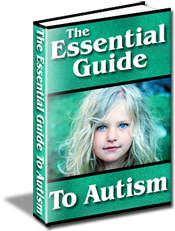Five Strategies For Coping With Autism and Anxiety On Socialization
Click Here To Know The Simple Methods To Effectively Spot The 31 Signs of Autism
Though no parent wants to hear that their child has any of the five types of autism, it can be somewhat of a relief to put a name to what is going on. The best thing about a diagnosis is that the child can get treatments that are meant to help with both communication and socialization. These are both problems for those who have this condition, but with help, they can be overcome. There are some things that parents can do to help, and it begins with finding out how to cope with autism and anxiety on socialization. Early intervention often means good results can be expected for some children.
Before therapies can be started, a thorough examination must be done. The child should be evaluated in all areas they are struggling with due to autism to see what areas need the most immediate help, and what might not need to be addressed at all. Usually one or two behaviors will be singled out as the most pressing, and those are the ones that parents need to concentrate on first. These therapies should always be done with positive reinforcement, and with endless amounts of patience.
1. Speech Therapy: Though there are some children with autism that speak rather well, they can still have communication problems in one form or another. They may have a large vocabulary, but they don?t know how to use it. Some children with autism are very bad at forming relationships because of speech-related communication problems. Speech therapy can help them learn to communicate their feelings and thoughts in a more mainstream fashion.
2. Desensitization to New Environments: Therapy focused on this area is done when a child always acts out with screaming tantrums away from home. It can be used for tantrums in any situation. The idea behind is to take the child to an area that they struggle with, and when the tantrum ensues, they are removed and they go home. The next time they visit the spot, they only go in for a short amount of time, usually less than a minute. The time is slowly upped in duration and when paired with positive feedback and rewards, this form of desensitization can be a very useful tool. This can help a child cope with new places such as entering a classroom setting.
3. Self-Awareness: These skills will help children learn to relate to themselves and that in turn helps them relate with others. When they can learn to manage their emotions, they can learn more about the same emotions in others. That helps them in understanding what the other person may be saying or feeling, and once that is accomplished, communications are better managed.
4. Cognitive Behavioral Therapy: This therapy also helps a child understand and manage their emotions, and can go a long way towards helping them express themselves rather than having no other way to express emotion except through a tantrum. It can help them relax in certain situations that are normally anxious, and can also help with obsessive behaviors of all types.
5. Medication: Some parents will refuse to put their children on medications to help anxiety during socialization, but there are times when it can greatly benefit the child so it is worth being open minded about this option.
Some children with autism can suffer from deep bouts of depression or may have ADHD. So, medication is something that can be discussed at length with your child?s physician or you may wish to investigate alternative forms of treatment, such as natural supplements or complimentary therapies to reduce autism and anxiety on socialization.
Grab your free copy of Rachel Evans' brand new Autism Newsletter - Overflowing with easy to implement methods to help you and your family find out about autism strategies and for information on high functioning autism please visit The Essential Guide To Autism.
Labels: autism_book, autism_book_picture_skill_social, autism_child_in, autism_child_in_sign, autism_childhood

